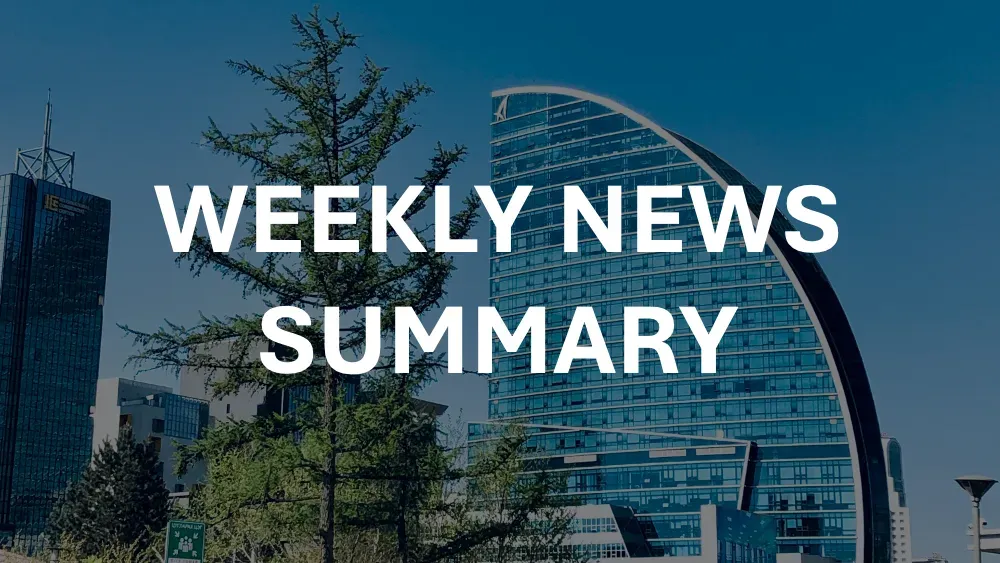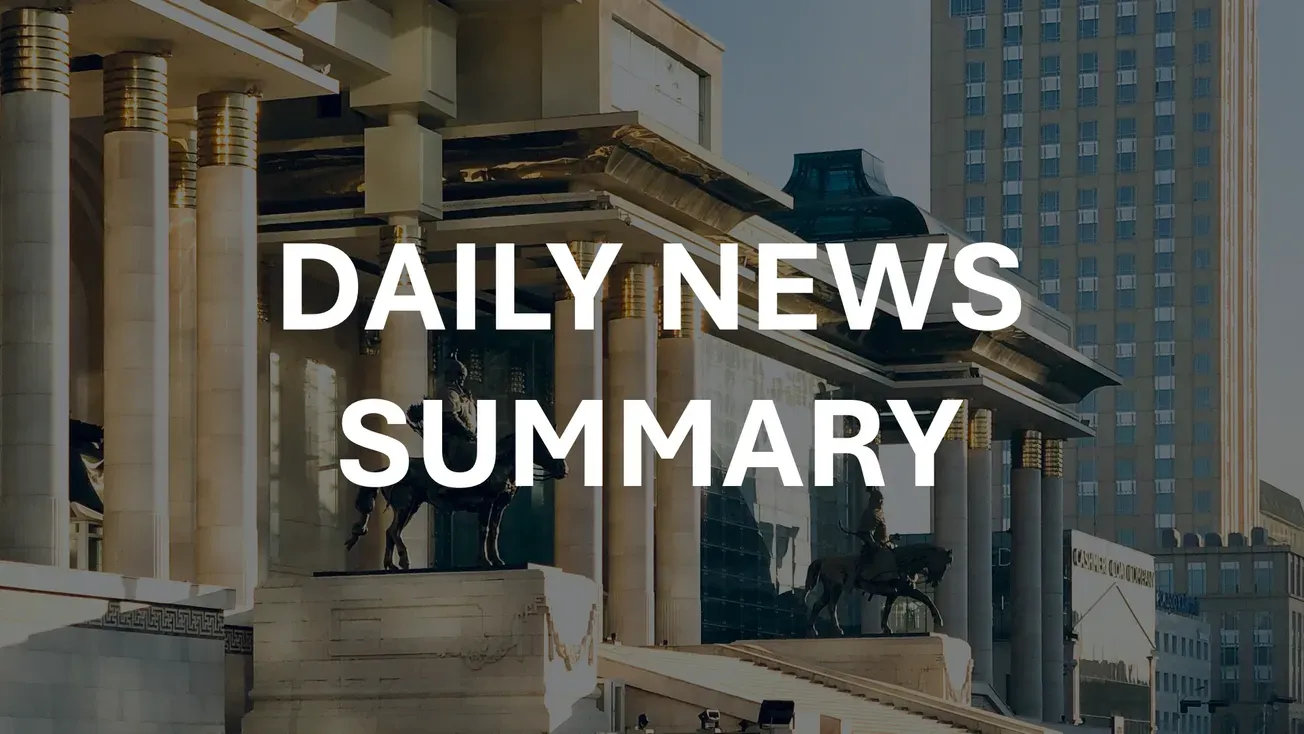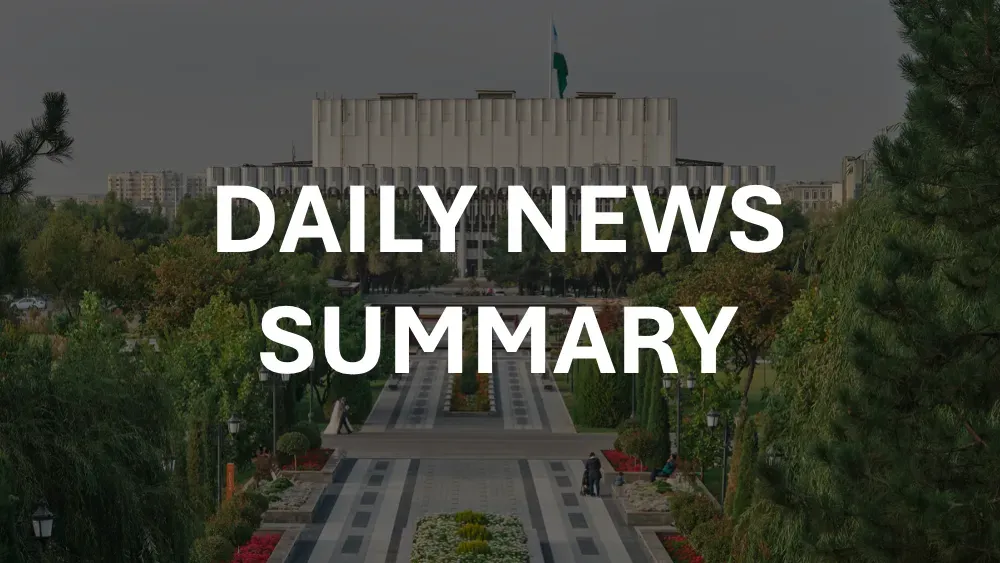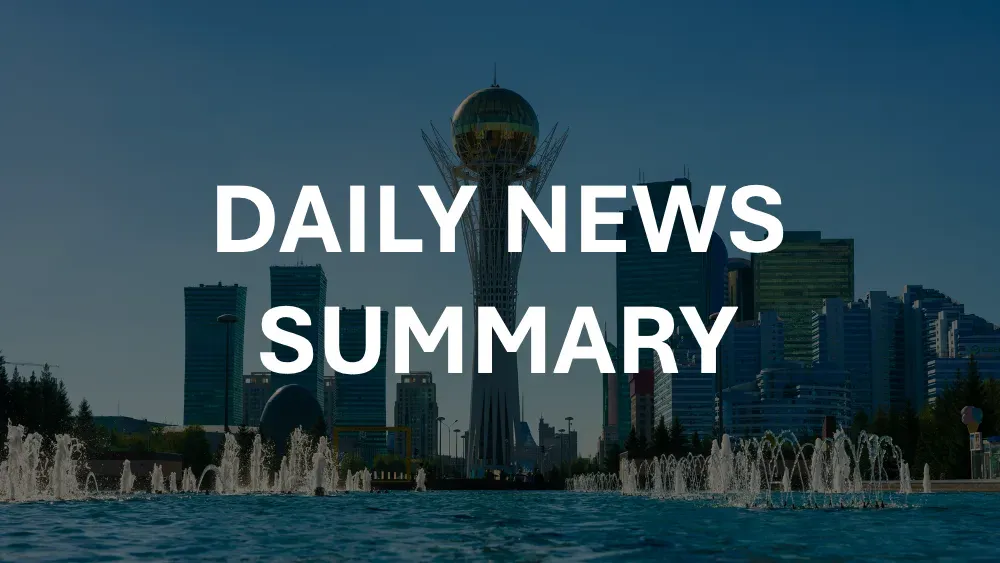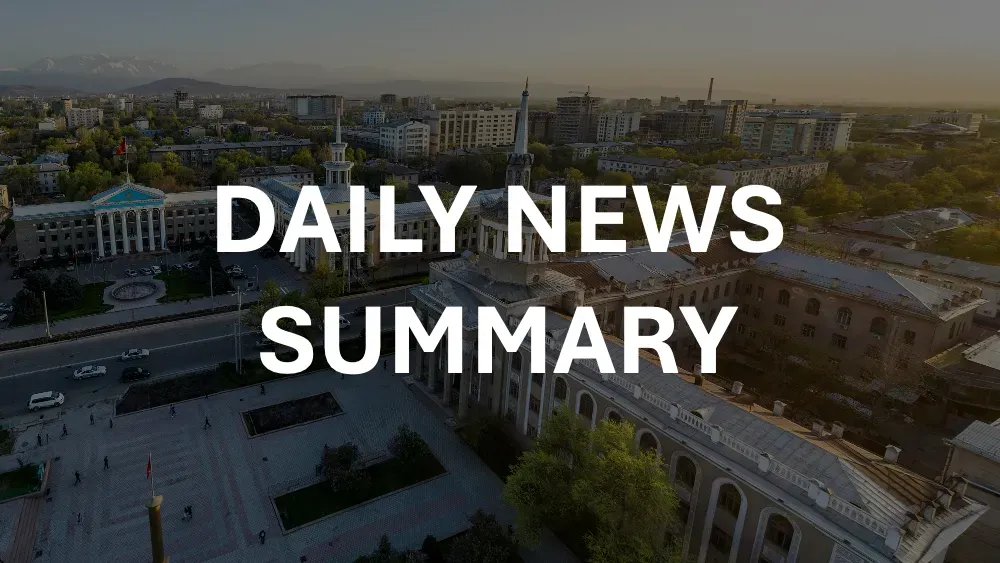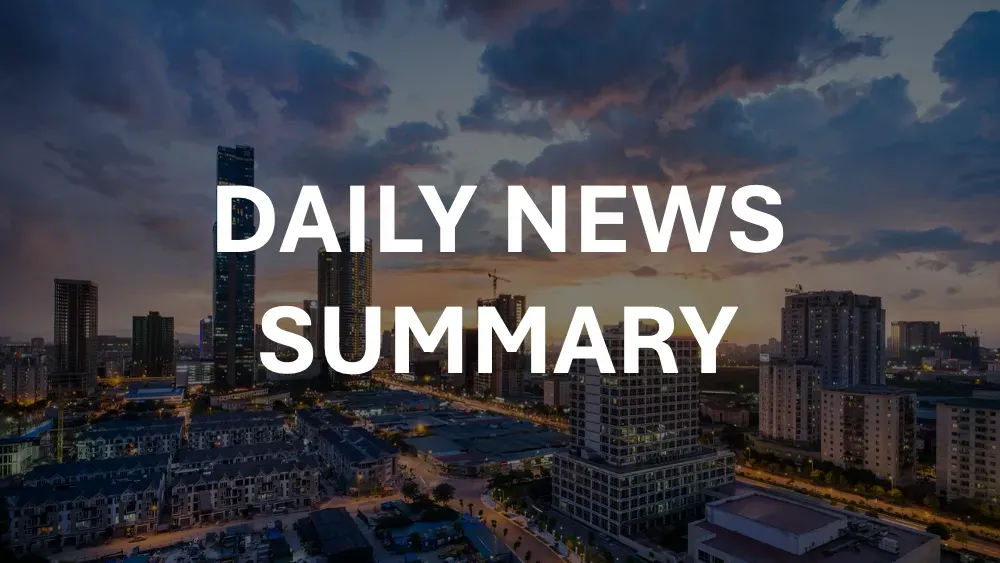This weekly digest showcases just 10 stories. Daily subscribers receive comprehensive intelligence briefs with 40 of the top stories organized by category. Don't miss the stories that matter.
Subscribe to Daily →
August 15, 2025 to August 21, 2025
This week's top 10 stories from Mongolia, selected from our daily intelligence briefs.
1. Government Moves to Index Coal Prices, Digitize Border Controls and Streamline Export Procedures
The cabinet approved a package of measures on Aug. 20 aimed at boosting coal exports and streamlining cross‑border procedures, including legally indexing power‑coal prices to market indices, routing commodity‑exchange coal through the automated Gashuunsukhait gate, and accelerating customs digitalization. Coal exports rose 30% to 8.4 million tonnes between July 19 and Aug. 19, with exchange‑traded volumes at year‑highs; the government said restricting the automated lane to exchange‑sold coal will support market trading and stabilize shipments (N. Uchral, Minister of Economy and Development).
Operational targets were set with concrete deadlines and investments: a customs “single window” for interagency data sharing and reduced paperwork is to be finalized by Aug. 31, funding was approved to complete the system, and coal lab testing turnaround will be cut to 48 hours by Aug. 2025. A new Gashuunsukhait branch lab will open in 2025 and private lab data will be integrated by Q3 2025. Additional measures direct capacity and financing for Shivee‑Ovoo and introduce fiscal incentives to favor exchange pricing in resource tax calculations, signaling a policy shift toward market‑based coal pricing and faster, more transparent export processing.
From daily brief: 2025-08-21
2. Erdenes Tavan Tolgoi Plans MNT 1.3 Trillion Operating Cost Cut as State Holding Pushes Reforms
Mongolia’s state-controlled mining group Erdenes Mongol presented a reform package to Prime Minister G. Zandanshatar aimed at shoring up the unified budget with MNT 4.6 trillion of measures, including MNT 1.3 trillion in operating-cost cuts at flagship Erdenes Tavan Tolgoi (ETT) and MNT 45 billion across other group firms. The group will implement a three‑phase plan to raise revenues, defer investments (ETT MNT 199 billion; Erdenet MNT 320 billion), and seek additional sales — Erdenet targets MNT 208 billion above budget and subsidiaries MNT 95 billion — to offset weaker output at Shivee-Ovoo and Baganuur.
The government pressed for leaner corporate structures, higher productivity, tighter centralized procurement and greater domestic processing to boost exports, tax receipts and the National Wealth Fund; Prime Minister Zandanshatar urged maintaining at least MNT 4 trillion in efficiency gains for 2025. The plan signals stronger state oversight of Mongolia’s mining assets and a near-term emphasis on cash preservation and revenue maximization over capital spending.
From daily brief: 2025-08-20
3. U.S. Restarts Funding for $462M Water Compact, Keeping Ulaanbaatar Supply Projects on Track
The U.S. government has concluded its review of foreign aid programs and will resume full financing of the $462 million Millennium Challenge Corporation (MCC) Water Compact with Mongolia, keeping planned water-supply expansion projects in Ulaanbaatar on track. MCC activities had been temporarily paused across 47 countries after a Jan. 20, 2025 executive order, though the U.S. State Department had already allowed critical construction and some procurements for the Mongolia Compact to continue; authorities report implementation remains within the approved budget and timeline and is expected to reach 87% completion by August 2025.
Resuming funding reduces project and procurement risks and signals policy stability for major U.S.-funded infrastructure in Mongolia, supporting anticipated economic growth, improved investment conditions and urban expansion in the capital. The decision mitigates potential disruptions from the global pause and preserves momentum on a high-profile bilateral development initiative.
From daily brief: 2025-08-20
4. Growth Holds at 5.6% in H1 as Revenues Slip and Budget Gap Widens to ₮1.3 Trillion
Mongolia’s economy grew 5.6% year‑on‑year in the first half of 2025, driven by a roughly 43–44% surge in agriculture and strong contributions from the services sector; seasonally adjusted GDP rose 1.6% quarter‑on‑quarter in Q2, according to preliminary National Statistics Office data. Despite resilient real activity, fiscal pressures intensified: the consolidated budget recorded a ₮1.3 trillion deficit through July, as total revenue and grants fell 6.1% to ₮16.6 trillion—tax receipts down 8.7% amid sharp drops in income tax and mineral royalty collections—while expenditures climbed 10.7% to ₮16.9 trillion, led by higher goods and services outlays and current transfers.
The divergence between robust output and weakening revenues heightens Mongolia’s near‑term financing needs and increases vulnerability to commodity price swings and tax‑base volatility. Policymakers face a tightening trade‑off: support continued growth in agriculture and services without further widening the budget gap or, alternatively, implement revenue measures or spending restraint to stabilize public finances ahead of potential external shocks.
From daily brief: 2025-08-19
5. U.S. Confirms Continued Funding for Mongolia Water Compact as Ulaanbaatar Supply Program Reaches 87% Completion
The United States has confirmed continued financing for Mongolia’s Water Compact, approving a joint package of $350 million in U.S. grant funding alongside $112 million from the Mongolian government to complete water infrastructure projects for Ulaanbaatar. As of end-July 2025 implementation is 87% complete, on schedule and within the approved budget; American firms Tetra Tech and AECOM are leading design and oversight, including work on a Deep Water Purification Plant intended to strengthen supply resilience for more than 1.5 million residents and businesses.
Procurement notices from the Millennium Challenge Account–Mongolia (MCA-Mongolia) indicate forthcoming tenders for consulting, goods and non-consulting services under Millennium Challenge Corporation (MCC) rules, signaling continued market opportunities for international contractors. U.S. officials framed the compact as a strategic pillar of bilateral cooperation and private investment–led economic development; MCA-Mongolia and Ambassador Richard Buangan have reiterated commitments to proceed “on time and within the approved budget.”
From daily brief: 2025-08-19
6. Government Launches Investigation into Unexplained Wealth of Senior Officials
The Prime Minister has ordered a strengthened anti-corruption push centered on a new task force to investigate whether current and former senior officials have amassed unexplained wealth, with the stated goals of reinforcing the rule of law, lowering corruption and improving Mongolia’s international perception. The task force is charged with proposing legal reforms, streamlining business regulations, reviewing and potentially annulling onerous permits, enhancing public access to government information, and reporting progress against set deadlines; officials must provide regular updates and all public servants are urged to uphold integrity and accountability.
The initiative includes commitments to cooperate with international organizations and business chambers and to table a resolution on political campaign finance transparency at the upcoming UN Convention Against Corruption in Doha. By combining investigative scrutiny with regulatory and transparency measures, the government signals a comprehensive approach intended to address systemic weaknesses that could affect foreign investment and Mongolia’s global anti‑corruption rankings.
From daily brief: 2025-08-15
7. Budget Cuts Challenge Air Pollution Efforts and Public Services
Mongolia’s 2026 budget allocates ₮5 billion for air pollution reduction, but officials warn this is insufficient as the Ministry of Environment faces a ₮77.4 billion cut to its overall budget, affecting operations and investments across 87 agencies and undermining meaningful progress on winter air quality. Energy sector vulnerabilities—continued reliance on aging Russian equipment and a major turbine failure at TPP‑3—heighten risks to Ulaanbaatar’s winter heating supply, while the government targets a ₮200 billion reduction in investment costs at Erdenes Tavan Tolgoi JSC and pledges stronger anti‑corruption transparency.
Social and health priorities include education reforms that introduce polo shirts as an option for primary school uniforms and plans to “significantly” raise teachers’ base salaries, currently the lowest among public servants, according to Minister of Education P. Naranbayar. International support will fund health infrastructure: a new independent cardiac center at the Third State Hospital will be established with $56.3 million from European and Luxembourgish donors.
From daily brief: 2025-08-17
8. Government Prioritizes Tax Reform and Public Input in 2026 Budget Planning
Mongolia’s Ministry of Finance and Ministry of Economic Development completed public consultations for the 2026 state budget, signaling a policy shift toward participatory budgeting and tax reform. The draft budget aims to balance fiscal consolidation with priority investments in health, education and infrastructure, while reducing tax burdens and streamlining fiscal policy; projected figures for 2025 show revenues of MNT 31.6 trillion, expenditures of MNT 32.9 trillion and inflation forecast at 7%.
Authorities incorporated more than 1,700 citizen and organizational project proposals and will rank foreign‑loan and aid‑funded projects by impact and efficiency, prioritizing completion of ongoing initiatives and major infrastructure. The Ministry of Finance framed the process as citizen‑centered and business‑friendly, emphasizing improved transparency and efficiency in public spending as central to forthcoming tax and budget reforms.
From daily brief: 2025-08-16
9. O.Batnairamdal Appointed to Lead Parliamentary Oversight on Oyu Tolgoi Operations
Parliament of Mongolia’s State Great Khural has appointed MP O. Batnairamdal as chair of an 11-member temporary committee tasked with parliamentary oversight of the Oyu Tolgoi mining complex, under Resolution No. 62 of 2025. Nominated by MP S. Zulphar and elected unanimously by attending members, the committee is empowered to scrutinize documents and activities related to safeguarding national interests and maximizing Mongolia’s benefits from the Oyu Tolgoi project.
The move signals heightened legislative scrutiny of one of Mongolia’s largest foreign-investment mining ventures and may presage tougher oversight or renegotiation efforts affecting revenue-sharing, project governance and investor relations. For international stakeholders, the committee’s findings and recommendations—expected to focus on transparency and accountability—could influence project timelines, fiscal terms and the broader investment climate in Mongolia.
From daily brief: 2025-08-15
10. Tri-Nation Railway Talks in Ulaanbaatar to Boost Border Train Exchanges and Transit Capacity
Railway officials from China, Russia and Mongolia will meet in Ulaanbaatar from August 25–29 to coordinate freight and passenger flows at border crossings and boost throughput along the central transit corridor running through Mongolia. The talks aim to raise daily train exchanges—particularly with China, which currently averages 15 or more trains per day—to handle strong cargo growth on the Asia–Europe route via UBTZ; in 2024 UBTZ moved 33.4 million tonnes (5.3 million tonnes of transit cargo) and foreign trade accounted for 62% of volume.
Delegates will explore operational measures to increase capacity, noting that adding one full consist (≈50 wagons) per day could yield about 1.5 million tonnes and roughly US$14 million in annual revenue. Improved throughput would bolster Mongolia’s export-led receipts—mining exports comprise roughly 30% of budget income—and enhance the corridor’s competitiveness as regional trade expands, with implications for transit times, border efficiency and bilateral rail cooperation.
From daily brief: 2025-08-22
These weekly highlights are a small sample of what's happening. Daily subscribers get comprehensive briefings with 40 top stories that connect the dots between events, track developing stories, and provide the context you need for informed decision-making.
Upgrade to Daily →
